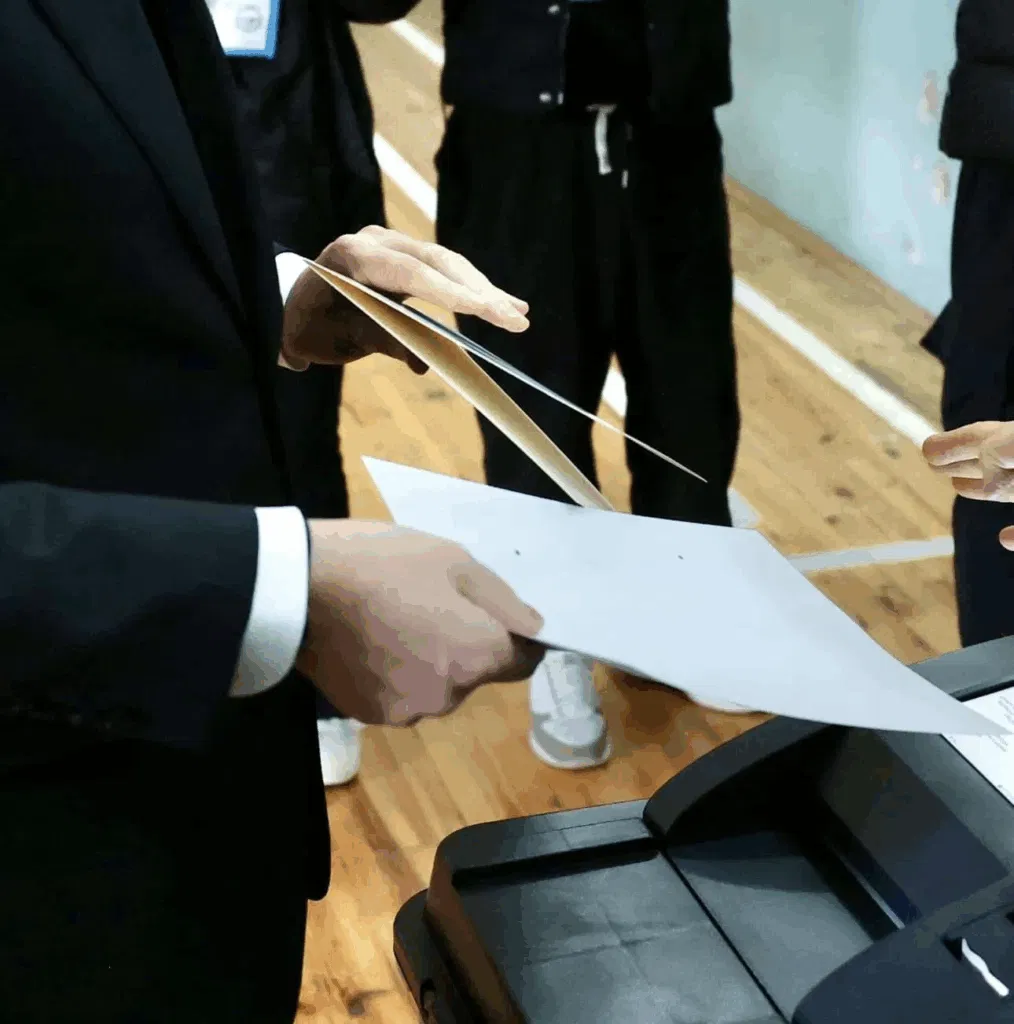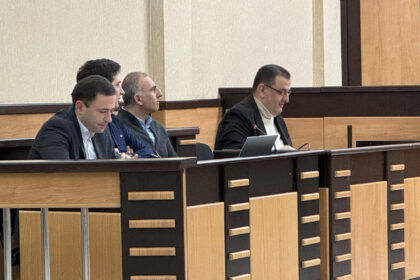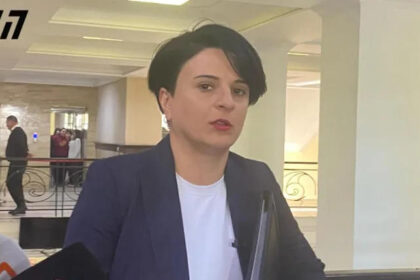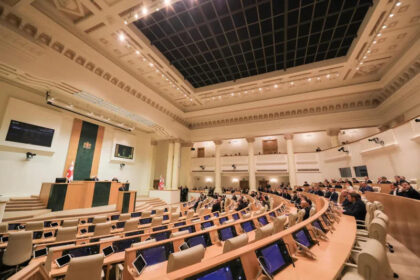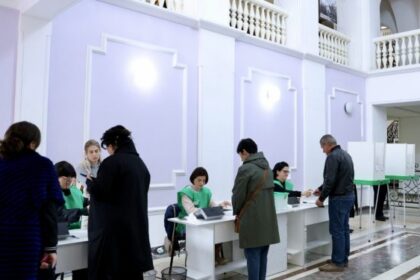**Georgia’s Election Commission Admits to Voter Secrecy Breach in 2024 Parliamentary Elections**
The Central Election Commission (CEC) of Georgia has come under fire for making changes to election day procedures, which critics argue effectively admit that voter secrecy was violated in the October 2024 parliamentary elections. The CEC decided at its April 29 meeting to place a special cover above the slot where ballots are inserted into electronic devices during upcoming local elections.
Critics claim that this change is a sign that the CEC acknowledges the widespread concerns about ballot secrecy raised after the 2024 general election, which was the first to use electronic voting systems. President Salome Zurabishvili, now head of the opposition’s Resistance Platform, said at a briefing on April 30 that the CEC’s decision “practically admits” that voter secrecy was violated in the last elections.
**Opposition Parties Cry Foul**
The opposition Lelo party echoed President Zurabishvili’s claim, accusing the ruling Georgian Dream (GD) party of using the breach to pressure voters and rig the vote. The GD party has been accused of manipulating the election results to maintain its power. Irakli Kupradze of Lelo said that the CEC “had to admit to a very important, very serious crime.”
**CEC Rejects Criticism**
The CEC rejected the criticism, calling it “unfounded” and saying some “interested parties” are trying to “manipulatively interpret” the new rule. The commission stated that the decision does not mean they acknowledge the accusations of violating voter secrecy.
**October 2024 Elections’ Black Mark**
In the October 2024 elections, opposition parties and watchdogs raised alarms about a potential mass breach of ballot secrecy due to the design of the voting process. Critics noted that the thin paper on which voters cast their ballots made it easy to detect their choices when inserted into the machine. The ruling GD party was listed as number 41 at the bottom of the ballot, while main opposition parties were at the top or in the middle.
Photos from election day showed visible traces of ink on the backs of ballots, indicating potential tampering. The Georgian Young Lawyers’ Association (GYLA) sought to have the district commissions annul the results of all electronic precincts, which covered 90 percent of polling stations. President Salome Zurabishvili also challenged the results in the Constitutional Court, citing violations of both ballot secrecy and universal suffrage.
**Protests and Demands for Change**
After the contested elections that handed Georgian Dream a 54% win, Georgians took to the streets. Protests have continued for over five months, with demonstrators calling for new elections and the resignation of the GD government. The protests gained new momentum after the ruling party’s decision to abandon the country’s EU membership course.
**Conclusion**
The CEC’s decision has added fuel to the already heated debate about electoral integrity in Georgia. Critics argue that the change is a sign that the commission acknowledges the widespread concerns about voter secrecy, while the CEC maintains that it is simply taking preventive measures. As the opposition continues to demand justice and reform, it remains to be seen how these developments will shape the country’s electoral landscape.
Read More @ civil.ge




